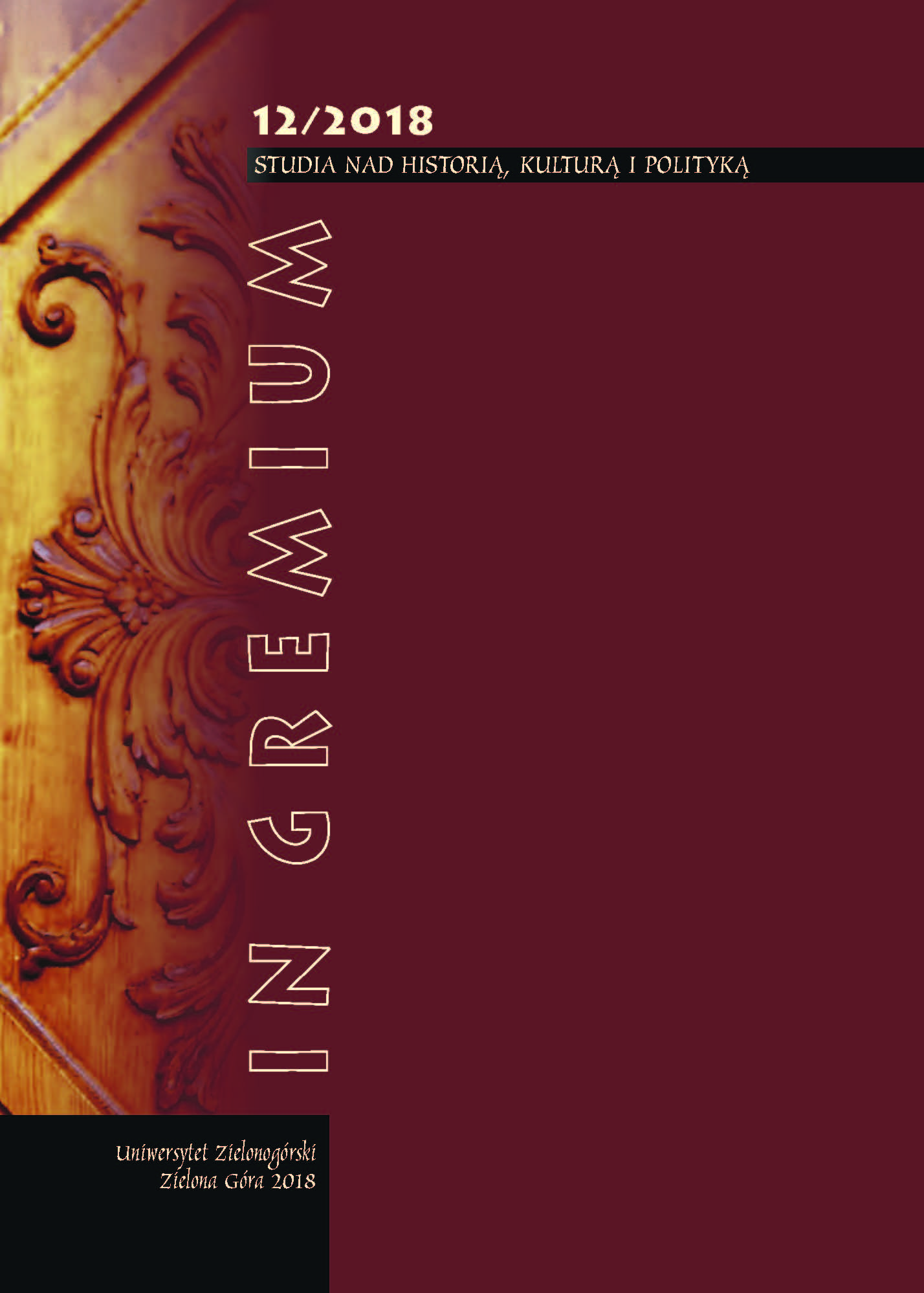Abstract
Following the Battle of Pydna, the victorious general Lucius Aemilius Paullus embarked on a trip of Greece. Accounts of the event may be found in Polybius, Livy and Plutarch. Each of them focused on different aspects of that journey. The most extensive surviving report is provided in Livy’s Ab Urbe Condita (45, 27-28), which is therefore the basic reference for the analysis conducted by the author in this paper. Her particular focus is on the fragments which describe Aemilius’ visits to Delphi and Olympia, and his reaction to works of Greek masters. The author compares the above ancient accounts, which show that Aemilius’ trip could be perceived as a continuation of a military action (Polybius), an inspection conducted by a victorious general (Plutarch), or simply an educational voyage of an enthusiast of Greek art, but also a pious person who would offer proper sacrifice to gods wherever his journey brought him (Livy).
References
Bernhardt M.L., Sztuka Hellenistyczna, Warszawa 1980.
Boschung D., Überlegungen zum Denkmal des L. Aemilius Paullus in Delphi, [w:] Rome et ses provinces Genese e diffusion d’une image du pouvoir, Hommages a Jean-Charles Balty, Brussels 2002, s. 59-72.
Briscoe J., A Commentary on Livy 41-45, Oxford 2012.
Dany O.P., Livy and the Chronology of the Years 168-167, „The Classical Quarterly” 2000, 50, 2, s. 432-439.
Eckstein A.M., Moral Vision in the Histories of Polybius, London 1995.
Eigler U., Aemilius Paullus: ein Feldherr auf Bildungsreise? (Liv. 45,27-28), [w:] U. Eigler, U. Gotter, N. Luraghi, U. Walter, Formen römischer Geschichtsschreibung von den Anfängen bis Livius, Darmstadt 2003.
Flaig E., Lucius Aemilius Paullus- militärischer Ruhm und familiäre Glücklosigkeit, [w:] K.J. Hölkeskamp, E. Stein-Hölkeskamp, Von Romulus zu Augustus. Grosse Gestalten der römischen Republik, München 2000.
Germini B., Statuen des Strengen Stils in Rom Verwendung und Wertung eines griechischen Stils im römischen Kontext, Roma 2008.
Gordon A.E., Illustrated Introduction to Latin Epigraphy, Berkeley 1983.
Gruen E., Culture and National Identity in Republican Rome, Ithaca 1992.
Günther L.M., Aemilius Paullus und sein Pfeilerdenkmal in Delphi, [w:] Rom und griechische Ostens: Festschrift für Hatto H. Schmitt zum 65 Geburtstag, Stuttgart 1995, s. 81-86.
Hammond N.G.L., Starożytna Macedonia, tłum. A.S. Chankowski, Warszawa 1999.
Henrichs A., Graecia capta: Roman Views of Greek Culture, „Harvard Studies in Classical Philology” 1995, s. 243-261.
Holland L.L., Plutarch’s Aemilius Paullus and the Model of the Philosopher Statesman, [w:] The statesman in the Plutarch’sworks, Leiden 2004, s. 269-280.
Jaeger M., Livy’s Written Rome, Ann Arbor 1997.
Kähler H., Der Fries vom Reiterdenkmal des Aemilius Paullus in Delphi, Berlin 1965.
Klebs E., Aemilius (114), Real Encyklopedie, Stuttgart 1935, p. 576-580.
Kousser R., Hellenistic and Roman Art, 221 BC-AD 337, [w:] J. Roisman, I. Worthington, A Companion to Ancient Macedonia, Oxford 2010.
Levene D., Livy on the Hannibalic War, Oxford 2010.
Levene D., Religion in Livy, Leiden 1993.
Miles M.M., Art as Plunder: The Ancient Origins of Debate about Cultural Property, Cambridge 2008.
Pausch D., Livius und der Leser Narrative Strukturen in ab urbe condita, München 2011.
Podemski K., Socjologia podróży, Poznań 2005.
Reiter W., Aemilius Paullus Conqueror of Greece, London–New York–Sydney 1988.
Rutheford I., State Pilgrims and Sacred Observers in Ancient Greece: A Study of Theoria and Theoroi, Cambridge 2013.
Russel A., Aemilius Paullus Sees Greece: Travel, Vision, and Power in Polybius, [w:] P. Derow, Imperrialism, Cultural Politics, and Polybius, Oxford 2012, s. 153-167.
Stadter Ph.A., Plutarch and His Readers, Oxford 2015.
Strong S.A., Roman Empire, at the Baths of Diocletian, Rome, „JRS” 1911, s. 1-49.
Śnieżewski S., Koncepcja historii rzymskiejw Ab Urbe Condita Liwiusza, Kraków 2000.
Toynbee J.M.C., Rec. Der Fries vom Reiterdenkmal des Aemilius Paullus in Delphi by Heinz Kähler, „JRS” 1967, 57, s. 265.

